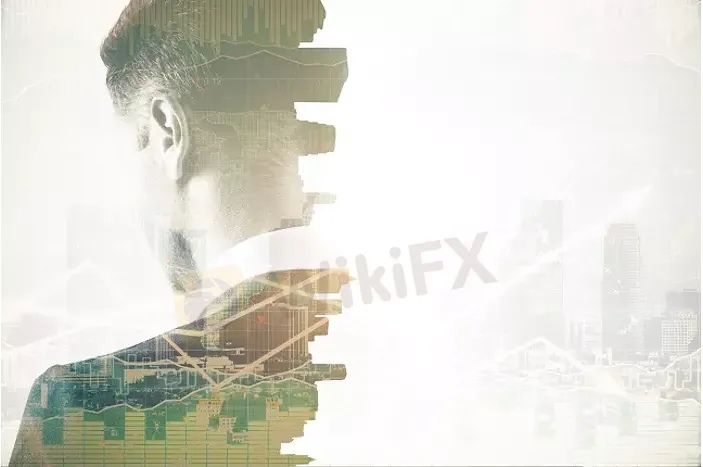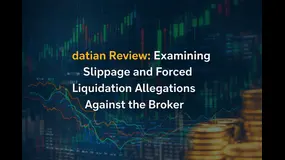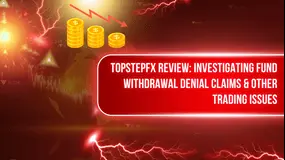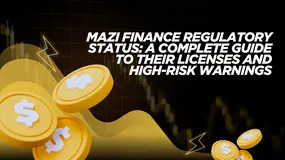WikiFX Valentine's Message | Trade Safely, Together Every Step of the Way
In the Forex Market, Trust Is Not a Promise — It’s Verified Through Safety, Transparency, and Support
简体中文
繁體中文
English
Pусский
日本語
ภาษาไทย
Tiếng Việt
Bahasa Indonesia
Español
हिन्दी
Filippiiniläinen
Français
Deutsch
Português
Türkçe
한국어
العربية
Abstract:The world of trading is full of difficult and incomprehensible words. When newbies meet such words they think that trading is not for them and lose hope for earning a lot of money on Forex. However, it’s a huge mistake! We gathered the most common trading words and their definitions

A “bear” is a trader who believes that a price of a currency pair will move downwards. The strategy of such trader is to sell this pair or any other instrument. Why bear? Imagine an angry bear that leans on the price chart with its paws and pulls it down. The adjective “bearish” can refer to a declining trend.
A “bull” is an opposite of a bear. It‘s a nickname of traders who believe that a price of an asset will rise. The term is based on the idea of a bull that raises an asset with its horns. There’s also a word “bullish”: an uptrend is called a bullish trend.
This is an international monetary system started in 1944 in a place called Bretton Woods. It replaced the previous financial system based on the gold standard. The main idea of the Bretton Woods system is that the US dollar played the main role in the world finance. It was converted to gold at a fixed rate of $35 per ounce. Other national currencies were fixed to the USD. The International Monetary Fund was launched to control this system. You can still come across the name “Bretton Woods” when you read articles about currencies. Simply remember that it is the synonym of the US dollars hegemony.
A central bank is an independent national authority that is in charge of a countrys currency, money supply, and interest rates. This institution conducts monetary policy, regulates commercial banks and provides financial services. The main goals of a central bank are to stabilize the domestic currency and support economic growth.
Sometimes a central bank needs to influence exchange rates by buying or selling currency in the Forex market. Usually, that happens when its national currency either rises too high and too fast or, on the contrary, when it collapses.
There are two kinds of interventions:
A central bank tries to weaken a domestic currency by purchasing a foreign currency. This way is used if the central bank wants to support exports.
A central bank wants to strengthen a domestic currency by selling a foreign currency in the market. As a result, domestic customers will pay less for imported good.
When a central bank intervenes, the Forex market usually reacts with big swings. That‘s why traders have to be aware of risks related to central banks’ currency interventions.
This is the name of a monetary policy when a central bank sets low-interest rates. As a result, credits become cheaper and borrowing becomes easy for business. It stimulates investment and expansion of operations. In the medium term, cheap money can encourage economic growth. At the same time, if the central bank maintains such monetary policy for long, there is a risk of a spike in inflation.
An exchange rate that doesnt include the US dollar. The calculation of cross rates is carried out via the ratio of each of the two currencies against a third currency – as a rule, the USD. For example, pairs EUR/USD and USD/JPY are used to calculate a cross rate of EUR/JPY. So, while the US dollar is not involved in a cross-currency pair, it has some indirect impact on it. Examples: EUR/JPY, EUR/GBP, EUR/CHF, GBP/JPY, GBP/CHF, and AUD/NZD.
A set of currencies used to establish a value of a national currency in relation to other currencies included in the basket. For example, the US dollar index is a currency basket that tracks the dynamics of the US dollar versus the currencies of Americas 6 trading partners.
This word comes from a bird “dove”. “Dovish” refers to an attitude of a central bank towards interest rates. When you hear the word “dovish”, it means that a central bank aims at a low-interest rate to encourage economic growth. When you hear that a central bank was dovish in its report, it means that it wont increase the interest rate in the near future. As a result, a domestic currency will decline.
The word “hawkish” comes from the bird “hawk”. Its an opposite of “dovish”. When a central bank sounds hawkish, it means that it has an anti-inflation stance and aims at a high-interest rate. When you hear that a central bank was hawkish in its report, it means that it plans to increase the interest rate soon. As a result, a domestic currency will rise.
The gold standard is a monetary system, in which the value of banknotes and coins is linked to a certain guaranteed amount of gold. Nowadays, the gold standard is not used. It was replaced by the so-called fiat money that is used and accepted as means of payment only because a government ordered to do so. For example, lira is fiat money in Turkey.
Its a fraud when a price of an asset rises because of false, misleading or greatly exaggerated statements. The aim of those who make such statements is to heat up the market so that they could sell the asset at a higher price. This practice is illegal.
Quantitative easing (QE) is an extraordinary type of monetary policy when a central bank aims to lower the interest rate and increase the money supply. To do that, it buys assets from the market. By doing so, it creates additional money. Increased money supply makes the national currency lose its value.
Its a type of monetary policy. Its main feature is that a central bank plans to reduce the demand for money and limit the pace of economic expansion. For this aim, it increases the interest rate. The national currency appreciates.

Disclaimer:
The views in this article only represent the author's personal views, and do not constitute investment advice on this platform. This platform does not guarantee the accuracy, completeness and timeliness of the information in the article, and will not be liable for any loss caused by the use of or reliance on the information in the article.

In the Forex Market, Trust Is Not a Promise — It’s Verified Through Safety, Transparency, and Support

Did you face losses due to a sudden change in the trading price on the datian platform? Were your transaction records deleted by the Hong Kong-based forex broker? Did the broker liquidate your trading account multiple times despite not reaching the stage where it mandated this move? Have you experienced heavy slippage on the trading platform? Concerned by these issues, traders have complained about the broker online. We will let you know of these with attached screenshots in this datian review article. Keep reading!

Did you face constant rejections of your fund withdrawal applications by TopstepFX? Have you been denied withdrawals in the name of hedging? Did you witness an account block without any clear explanation from the forex broker? There have been numerous user claims against TopstepFX regarding its withdrawals, payout delays and other issues. In the TopstepFX review article, we have investigated the top complaints against the US-based forex broker. Keep reading!

When choosing a broker, the first question is always about safety and legitimacy. Is my capital safe? For Mazi Finance, the answer is clear and worrying: Mazi Finance is an unregulated broker. While the company, MaziMatic Financial Services LTD, is registered in the offshore location of Saint Lucia, this business registration does not replace strong financial regulation from a top-level authority. Independent analysis from regulatory watchdogs shows a very low trust score, made worse by official warnings from government financial bodies and many user complaints about serious problems. This article provides a clear, fact-based analysis of the Mazi Finance regulation status. Our goal is to break down the facts and present the risks clearly, helping you make an informed decision and protect your capital.
